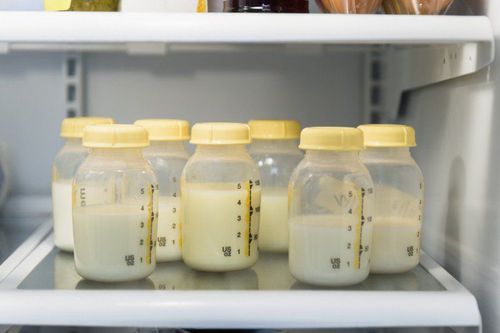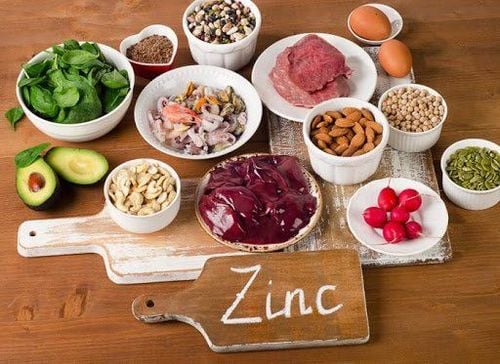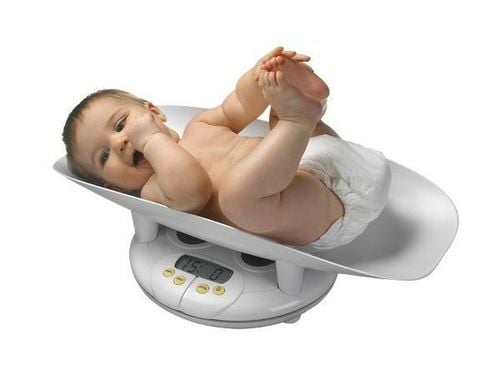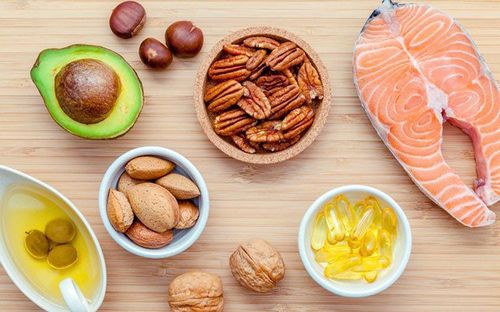Obesity in children is quite common in large cities. The causes are often a lack of physical activity and excessive nutrition, which negatively impact the child's health as they grow up. Therefore, parents need to understand their child's energy needs as well as the metabolic process in children during their growth stage to nourish them appropriately.
1. Overview of children's energy needs.
Do parents know how many calories their child needs each day? Although it is usually not necessary to calculate exactly how many calories a 5-year-old needs each day, it can be more helpful if parents understand the calorie needs their child gets from the foods and drinks consumed during a few days and then compare it with the child's actual energy requirements. However, the exact number of calories the child needs can still vary depending on the child's needs and condition.
If a child is identified as being overweight or at risk of obesity, the estimated calorie intake can help parents develop healthy eating habits and meal plans for the child as well as the entire family. It is important that growing children get most of their calories from nutrient-dense whole foods, such as fruits, vegetables, low-fat dairy products, whole grains, healthy fats, and proteins while consuming fewer sugary foods, fried foods, and fast food, which will be better for children's metabolism.
2. How many calories daily do children aged 4-5 need?
During the stage of 4-5 years old, parents may worry because children are playful and picky eaters and usually think that their children might not be getting enough calories. However, understanding how many calories children actually need for their metabolism at different stages can help parents worry a little less. Moreover, this understanding can also help prevent children from overeating.
To calculate how many calories a growing child needs daily, scientists need to consider age, gender, and physical activity levels. Accordingly, for moderately active 4-year-old boys and girls, the need is 1,400 calories/day, and for 5-year-olds, it is also 1,400 calories/day. Meanwhile, for 4-5-year-old boys and girls who are less active or do not engage in regular activity, only 1,200 calories/day are needed. However, regardless of whether a child is overweight or at an appropriate weight, encourage them to stay active, as it is a good health habit for everyone

Moreover, most of the time, if a child eats enough healthy foods and participates enough in physical activities, parents will not need to calculate the amounts of calories. Calorie calculation is usually a temporary strategy to provide doctors with additional information about the child's eating habits. From there, the doctor can plan a nutrition regimen based on an estimate of the child's energy needs.
3. Advice for raising children aged 4 to 5 years old.
During this stage, as children are growing, they will find food more palatable when they are well-fed. Starting from the preschool and kindergarten years, children should eat foods similar to those of the other family members.
It is the parent's job to provide nutritious food for children in a quiet environment with a regular eating schedule throughout the day. Maintaining this long-term will develop into good habits, with the following advice:
Let the children eat a variety of foods. When children are offered a wide range of foods, they are guaranteed to receive a balanced intake of necessary nutrients. Healthy food options for children include fresh vegetables and fruits, milk and dairy products, fresh proteins such as chicken, beef, pork, and fish, as well as whole grains.
Don't expect the children to eat everything that is given to them. This means it is important to change the perception that growing children need to eat a lot of food. Accordingly, parents should guide children toward an appropriate portion size, but it is even better to let them choose their own portions. At this age, children begin to learn when they are full. Some 4-5-year-olds may still be picky eaters, so parents can encourage them to try new foods but should not force them to eat.
Establish regular meal times throughout the day and sit together for main meals or even snack times. Try to be careful not to provide extra food between these meals. Children who are given snacks continuously throughout the day may not feel hungry at mealtime. Furthermore, when it's time for a main meal or snack, turn off the TV and eat together at the table. This helps create a quiet environment for eating.
Avoid as much as possible processed foods and sugary drinks. Parents should limit the number of processed foods in-home meals and reduce fast food intake. Most importantly, sugary drinks, such as soft drinks, fruit juices, bottled tea, or energy drinks, should be restricted. Sugary drinks can cause cavities in children's teeth and lead to unhealthy weight gain or obesity.

Good drinks for growing children are water and milk. These are rich sources of nutrition for growing children as well as a supply of calcium to help strengthen bones. Sometimes children want to have ice cream is not a problem, but parents should not indulge them in having it every day. Whole fruits are preferred over fruit juices – even if it’s 100% fruit juice – because fruit juices are high in sugar and low in fiber. Fruit juice should be consumed during meals, as it is more likely to cause cavities when consumed between meals.
Teaching manners on the table. At this age, children are ready to learn basic table manners. By the age of 4, children no longer grip their fork or spoon in a fist and can hold them like adults, as well as begin learning how to use a table knife properly. Additionally, children need to be taught not to talk with food in their mouths, how to use a napkin, and not to reach across someone else’s plate... as well as cleaning up the table after finishing a meal.
In conclusion, the concept of children's energy needs can be used as a guideline, but that doesn’t mean parents must start counting how many calories a 4-year-old needs each day. Healthy growing children will have different needs; at the same time, when children are provided with a variety of foods daily, building scientific eating habits during this stage is more important than what they need to consume in each meal.
Please dial HOTLINE for more information or register for an appointment HERE. Download MyVinmec app to make appointments faster and to manage your bookings easily.
To arrange an appointment, please call HOTLINE or make your reservation directly HERE. You may also download the MyVinmec app to schedule appointments faster and manage your reservations more conveniently.








